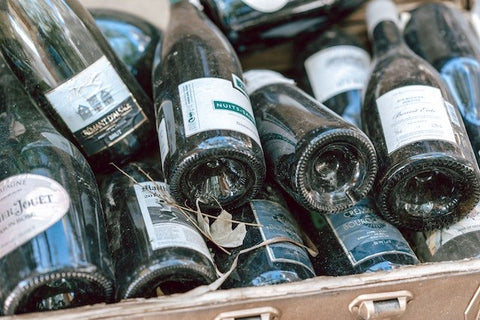If wineries truly (hard seltzers are canned so they do not affect the environment as much) care about the environment then glass wine bottles need to get lighter and slowly phased out. There should be an exception for wines made for aging as glass is the best inert material for such wine. But other than that it is long overdue to pass on glass.
Glass bottled wine has a major negative environmental impact, stemming (wine glass pun) from production, transportation and disposition. The highest contributor–at 31 percent–of the carbon footprint of a single glass bottle of wine comes from its manufacturing and disposal. Glass is not just made from sand of which there is shortage but also requires soda ash and limestone. Their extraction is a highly pollutive process that depends on massive CO2 generating heavy machinery. Transporting glass waste is costly, deterring waste management companies from recovering the glass because there are generally no nearby buyers.
As a nationwide wine shipper, we are well aware of just how costly glass is to pack and ship. We were optimistic when Covid-19 happened and the way wine was sold shifted towards a Direct-To-Consumer (DTC) model for wineries. We thought wineries would take heed and adopt lighter bottles. But even though wineries saw upticks in their DTC sales during the pandemic they still shipped the vast majority of what they produced in twelve bottle cartons on shrink wrapped pallets using freight carriers. This is why certain wines that we sell continue to weigh in at five to six pounds for a single bottle.
Technology as the universal panacea will point to a solution. Paper wine bottles are already in beta. The boxed wine category continues to grow with less detractors. Canned wine is lighter to transport and appears to be not going anywhere.
Bad habits die hard. The environmental impact of drinking wine from a glass bottle is seriously adverse. We need to discard this notion that good wine comes in a heavy bottle. How many times do we make do with reusable mugs if the stemware is not enough to go around at a party. For real, Orin Swift’s Palermo Napa Valley Cabernet Sauvignon is sooooo good that a lighter more sustainable container is not going to subtract from the wine's experience. Bottomline: lighter, sustainable materials mean less harm on the planet. I think we can swallow that.
We will be following up with a list of producers who are committing to sustainable packaging so please check back soon.




评论 (0)
这篇文章没有评论。成为第一个在此留言的人!